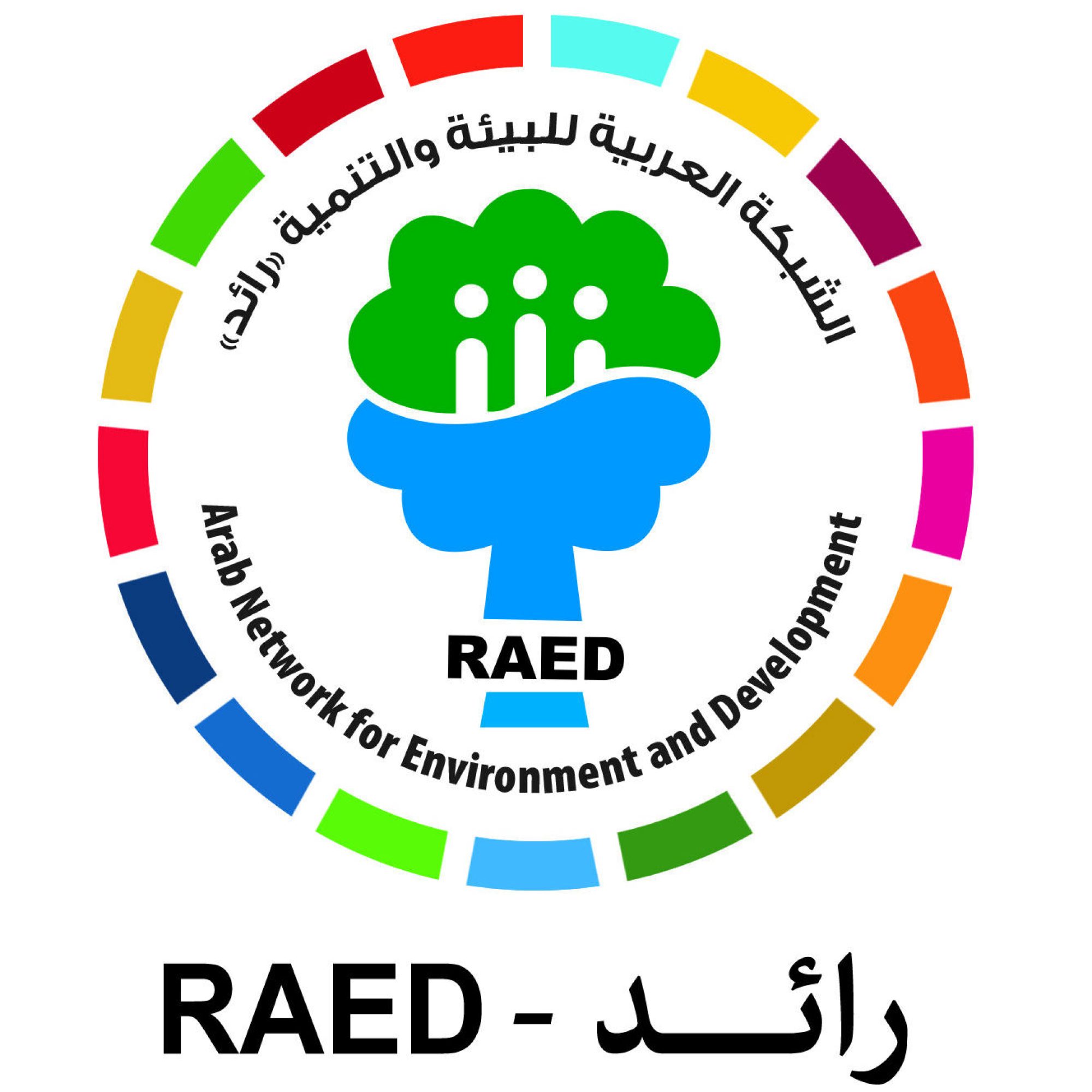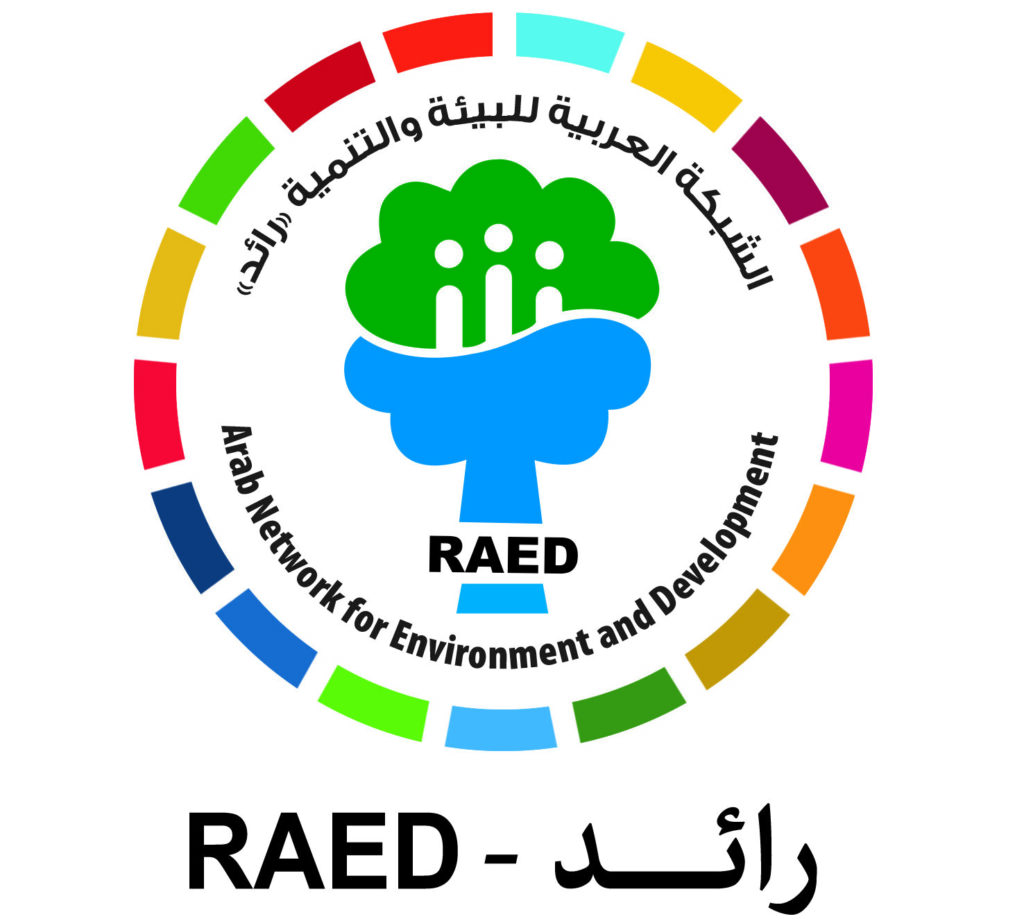As part of the “Cairo Water Week 2025” events RAED participates in the Ministerial Meeting and the High-Level Joint Committee to Enhance Water and Food Security in Arab Countries
An Arab Fund for Integrative Initiatives. Transition to a Green Economy and Technical and Financial Support for Palestine
On October 14–15, and as part of the Cairo Water Week 2025 activities, the Arab Network for Environment and Development (RAED) participated in the Third Joint Ministerial Meeting of Arab Ministers of Agriculture and Water, alongside the Seventh Session of the High-Level Joint Committee on Agriculture and Water Sectors. The meetings brought together Arab Ministers of Water and Agriculture, representatives of the League of Arab States and international and regional organizations, including the Food and Agriculture Organization of the United Nations (FAO), the United Nations Economic and Social Commission for Western Asia (ESCWA), the United Nations Educational, Scientific and Cultural Organization (UNESCO) and the Arab Organization for Agricultural Development (AOAD).
This year’s meetings took place within the framework of joint efforts to strengthen water and food security in Arab countries and to promote integration between the agriculture and water sectors in alignment with the Sustainable Development Goals (SDGs). The events provided a vital platform for exchanging visions and expertise among governments, regional organizations and civil society amid the growing challenges of climate change, water scarcity and land degradation in the region.
Participants, including RAED’s representatives, emphasized the importance of regional cooperation and knowledge exchange among Arab countries in the fields of water, energy and food management as well as the adoption of policies that support the transition toward a green economy and climate-smart agriculture. They also underscored the need to enhance civil society participation in supporting governmental efforts through community awareness programs on the rational use of natural resources and the implementation of integrated water and agricultural management approaches.
During the working sessions, RAED, representing civil society organizations active in environment and development across the Arab region, highlighted the importance of strengthening partnerships between governments, international, regional and community organizations to build more resilient and sustainable food and water systems capable of adapting to the impacts of climate change. RAED stressed that addressing water and food security challenges requires mainstreaming environmental considerations into all stages of agricultural and water planning and adopting the circular economy approach, which promotes resource reuse, waste reduction and value maximization of water and energy. The network also called for empowering women and youth in agricultural and water sectors as key drivers of change, noting that engaging the younger generations in climate-smart agriculture and water management projects would contribute to a long-term behavioral and institutional shift toward more sustainable production and consumption patterns.
The ministerial sessions covered several key themes, most notably the development of joint Arab policies for sustainable management of water and agricultural resources, as well as enhancing cooperation among Arab countries to exchange modern technologies in irrigation, land management and improved agricultural productivity. Discussions also addressed the use of non-conventional water resources, such as desalination and the reuse of treated wastewater and bridging data and information gaps through geographic information systems (GIS) and remote sensing technologies.
Participating countries presented their national experiences in climate-smart agriculture and the use of renewable energy in agricultural operations, emphasizing the importance of supporting scientific research, innovation, and capacity-building in cooperation with international organizations such as FAO, ESCWA and UNESCO. The meeting concluded with a set of recommendations aimed at strengthening Arab cooperation and institutional integration between the water and agriculture sectors.
The recommendations included a call for FAO and ESCWA to continue supporting Arab countries in their transition toward sustainable food systems, to issue periodic reports on progress achieved and to finalize and disseminate the technical study on desalination for agriculture after incorporating member states’ comments. They also encouraged the replication of successful regional experiences, the adoption of the circular economy as a cross-sectoral practical approach to sustainability and the development of an applicable Arab model to support desalination and climate-smart agriculture projects using renewable energy.
Furthermore, the recommendations emphasized empowering youth and farmers to engage in modern agricultural fields, activating regional training programs on the use of brackish water and sustainable farming technologies and proposing the establishment of an Arab Regional Fund for Water and Agriculture to finance integrative initiatives in desalination, renewable energy, and safe water reuse. The participants also reaffirmed the Arab unified stance in defending water and food rights and the commitment to provide technical and financial support to countries facing severe crises, particularly Palestine.
At the conclusion of the meetings, participants reaffirmed the Arab commitment to advancing water and food security and promoting the sustainable management of natural resources amid escalating climate challenges. They stressed the importance of strengthening regional partnerships among governments, international organizations and civil society, also expanding pilot projects and community initiatives that promote climate-smart agriculture and enhance the resilience of food systems across the Arab world.

